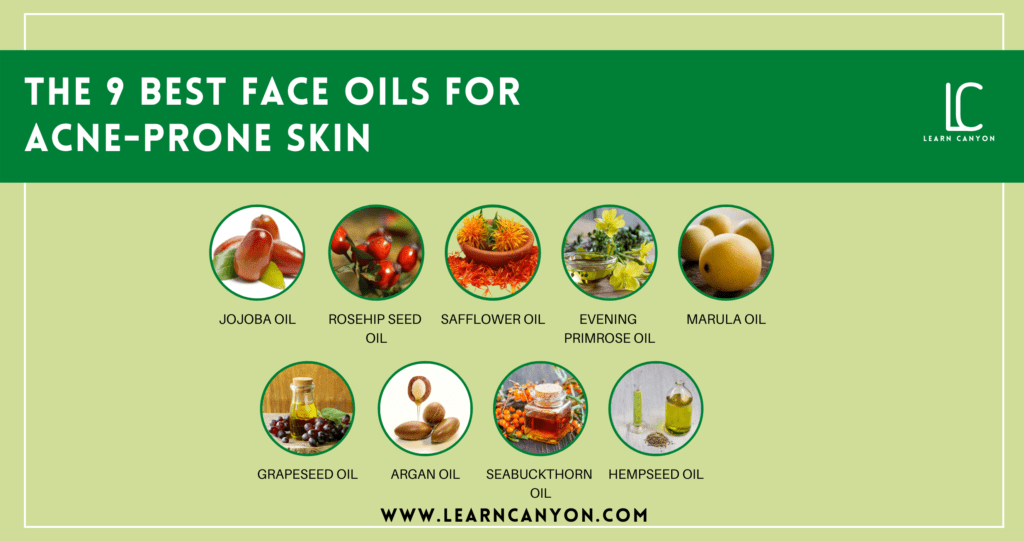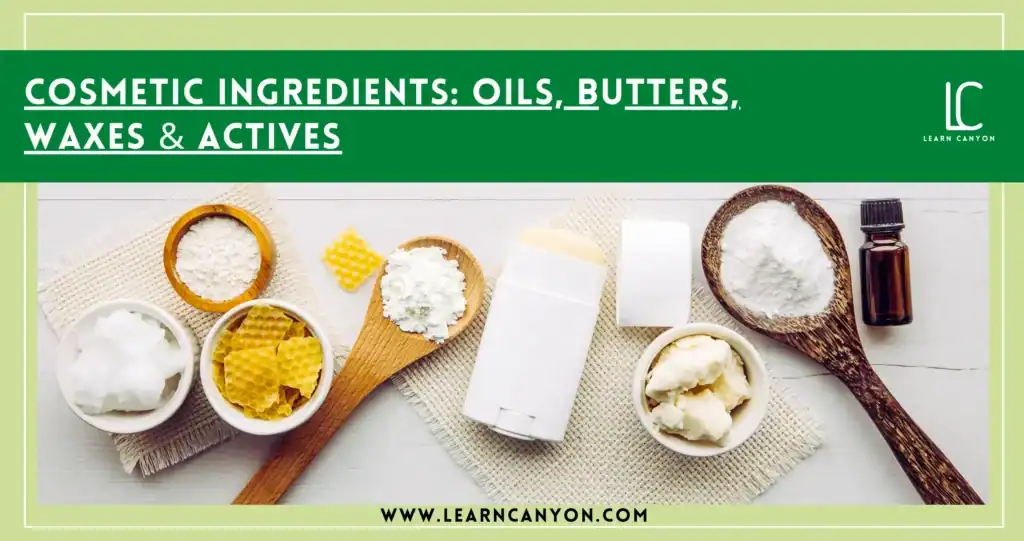When it comes to our skincare routine, we tend to follow a common mantra of cleansing, toning and moisturizing, but is that enough for your skin to stay nourished?
And if you have skin issues like acne, then this common cleansing process won’t be enough to fix your acne and proper hydration can’t be achieved.
That’s when skin experts suggest to use facial or face oils for acne-prone skin. And it does have a hugely significant role to fix our skin issues and providing nourishment.
And we are sure that many of you are not aware of face oils.
Face oils are used to moisturise the face and keep it hydrated. This essential comes in useful to soften, nourish, and balance skin for a healthy-looking glow and is typically prepared with a variety of plant oils. Including face oils in your skincare routine can be beneficial.
And before you say, “Well, my skin is oily, so it doesn’t need any extra hydration,” keep in mind that oily skin can also be dehydrated. If your skin is dehydrated, it may produce more oil to compensate for the lack of moisture.
The same goes for those people who deal with acne-prone skin.
Many people who have acne-prone or oily skin assume that using facial oils can clog pores and cause more pimples.
However, the appropriate face oil can help heal pimples, soothe irritated skin, and lighten acne scars. Face oils can also be used as a nourishing moisturiser while also assisting in the regulation of oil production in the skin.
Below we have mentioned some of the best facial oils for acne-prone skin.
Note: If you have acne-prone skin, look for a low-comedogenic oil. This rating ranges from 0 (non-clogging pores) to 5 (clogging pores).
Download Our FREE Face Oils Guide Now
9 Best Face Oils For Acne-Prone Skin
Jojoba Oil
This oil is derived from the seed of the Simmondsia Chinensis (jojoba) plant, a shrub native to parts of Arizona, California, and Mexico, is known as jojoba oil (pronounced ho-ho-ba).
It’s a popular moisturiser for oily, acne-prone, and/or sensitive skin because it’s light and has a molecular structure that’s similar to skin’s natural sebum.
It’s a great carrier oil for oily skin since it prevents the skin from producing excessive amounts of oil. When using essential oils in facial care, they should always be mixed with a carrier oil like jojoba.
This oil, which is high in vitamin E, is non-comedogenic, antimicrobial, and antioxidant.
This non-comedogenic oil is frequently regarded as the holy grail of acne-friendly face oils, with a comedogenic rating of 2.
Rosehip Seed Oil
Rosehip seed oil is an essential oil extracted from Rosaceae plants.
It is pressed from the fruit and seeds of the rose plant, as opposed to rose oil, which is extracted from rose petals.
It is a natural source of vitamin C, a powerful antioxidant that can assist with everything from pigmentation issues to collagen formation.
Vitamin C not only helps to minimise acne-related irritation but also promotes skin cell growth by increasing collagen and elastin production.
Rosehip oil may have the greatest direct effect on inflammatory acne due to its anti-inflammatory properties. This includes the following:
- Papules\spustules
- Nodules
- cysts
With non-inflammatory acne or congested pores, you may still experience benefits.
Vitamin A and linoleic acid in the oil serve to regulate sebum production, which can help prevent the formation of blackheads and whiteheads.
With a comedogenic rating of 1, rosehip oil is thought to be an ideal oil for acne-prone, irritated, or sensitive skin.
Safflower Oil
Safflower, also known as Carthamus tinctorius, is a blooming plant that has been called the ‘4,000-year-older.
Safflower seed oil protects against UVB light damage.
It is a natural antifungal and antimicrobial oil. Studies show that these qualities, along with the wound-healing capabilities of safflower oil, can help repair skin damage. When it comes to addressing acne, these qualities are a huge bonus.
The anti-inflammatory properties can help minimise or eliminate skin redness.
While those are excellent qualities for people who have huge, inflammatory pimples, safflower oil can also help with blackheads and whiteheads. This is related to one of safflower oil’s most distinctive characteristics: a high concentration of linoleic acid (about 70%).
Linoleic acid, alpha-linolenic acid, and oleic acid are among the omega 3, 6, and 9 fatty acids found in them.
Each of these ingredients is beneficial to the skin in and of itself, but this combination makes safflower oil so deeply hydrating and soothing.
The comedogenic rating of safflower oil is 0.
Evening Primrose Oil
Evening primrose oil (EPO) is extracted from the seeds of the Oenothera biennis plant, which is native to North America and Europe.
Some people discover that EPO and other natural products help them to get rid of their acne problems without the negative side effects that come with traditional acne treatments.
However, there isn’t a lot of scientific evidence to back up the use of Evening Primrose Oil for acne treatment.
By regulating the body’s omega-6 and omega-3 necessary fatty acid ratios, Evening Primrose Oil products may help to minimise acne.
Gamma-linolenic acid, or GLA, is an omega-6 fatty acid found in abundance in this natural oil.
This vitamin may provide several health and skin benefits.
It’s thought to be an anti-inflammatory, so it can assist with the inflammation and redness that come with acne breakouts.
It may also aid in the hydration of your skin.
It’s also possible that it’ll help you regulate your hormones because GLA transforms into a prostaglandin, which has hormone-like actions in the body. All three of these advantages can lead to clearer, more balanced skin.
Comedogenic Rating of EPO is 2-3.
Marula Oil
Parts of southern Africa are home to the marula fruit tree (Sclerocarya birrea). The trees used to be rare and wild, but they are now cultivated.
Despite its thickness, marula oil absorbs quickly and includes Vitamin C and Vitamin E, which provide antioxidant benefits to your skin.
It also includes amino acids, making it a protein-rich oil.
This implies it has anti-ageing properties and can aid in the healing of damaged skin, such as spots and blemishes.
Acne scars can be treated with these vitamins. Because it is non-greasy, marula oil is an excellent moisturiser for oily skin and acne treatment.
It also has antibacterial qualities, making it potentially useful against bacteria that cause pimples, whiteheads, and blackheads.
But due to the presence of high Oleic acid, its comedogenic rating is 3-4.
Grapeseed Oil
The seeds that are ejected from grapes during the winemaking process are used to make grapeseed oil. The seeds are cold-pressed to generate an oil with anti-inflammatory and antioxidant effects.
Vitamin E, beta-carotene, and linoleic acid in grapeseed oil give the oil antioxidant and antiproliferative qualities, which aid in the regeneration and replacement of old or damaged cells in healthy cells.
Researchers have recognised the power of vitamin E, in particular, to help level skin tone and repair blemishes.
Grapeseed oil may potentially aid in the fight against acne-causing germs.
Consider grapeseed oil as the first line of defence to keep skin clear whether you’re prone to breakouts or just want to improve your skin tone.
The comedogenic rating of grapeseed oil is 1.
Argan Oil
The kernels of the argan trees endemic to Morocco are used to make argan oil.
It’s most commonly sold as a pure oil that can be applied topically (straight to the skin) or consumed for a variety of health advantages.
It protects skin from sun damage.
Argan oil is high in vitamin E and has a comedogenic grade of 0.
It’s often recognised as a holy grail oil that works wonders on hair, skin, and nails.
On the skin, argan oil offers anti-ageing, relaxing, and healing properties.
Argan oil, like jojoba oil, can help to reduce sebum production, which can help with anti-acne efforts.
Vitamin E, which is naturally contained in the oil, includes anti-oxidants that aid in the removal of damaged cells and the growth of new ones, thus erasing acne scars.
Seabuckthorn Oil
Sea buckthorn is a plant with small berries that grow in hilly places throughout Asia and Europe. Hippophae rhamnoides is another name for it.
Fruit oil and seed oil are two types of oil produced from the plant. Both have therapeutic effects that are distinct from one another.
Essential fatty acids including omega 3, omega 6, and omega 9 are abundant in buckthorn seed oil. These fatty acids aid to moisturise and regenerating skin that is dry or wrinkled.
The use of sea buckthorn oil for acne has yielded positive effects.
Excess oil is often produced by dehydrated skin in an attempt to hydrate itself; this excess oil, when mixed with bacteria and dead skin cells, can cause acne. One of the benefits of utilising sea buckthorn oil for acne is that it hydrates the skin profoundly. As a result, the skin’s oil production will be more balanced.
The vitamin C in buckthorn oil will assist to erase any pigmentation leftover from past outbreaks, as well as scars from earlier eruptions.
The comedogenic rating of Sea buckthorn oil is 1.
Hempseed Oil
Hemp seed oil is a green oil made from the hemp plant’s seed that is cold-pressed.
Omega 6 and omega 3 fatty acids, antioxidants, vitamins, and minerals are abundant in this oil.
It’s a cheap and easy way to hydrate your skin while simultaneously treating acne (particularly cystic acne), reducing scars, reducing redness, and promoting healing.
It’s also used to treat skin problems like eczema and psoriasis. It does not clog pores and can be used as a daily moisturiser, just like the other carrier oils stated!
The comedogenic rating of hempseed oil is 0.
Frequently Asked Questions
Are our face oils safe to use?
Well, it depends upon your skin type. Some face oils are the perfect remedy to dry, flaky skin and red cheeks, and they can be far more effective at hydrating than over-the-counter lotions and creams.
But it does not mean it will work on everyone. That’s why better to consult dermatologists or skincare experts to know your skin type and concerns before opting for facial oils.
Which oils are comedogenic?
– Cocoa Butter Oil
– Coconut Oil
– Soybean Oil
– Wheatgerm Oil
How long does it take for facial oils to work on acne-prone skin to reduce acne?
First of all, it depends on the severity of acne and the type of anti-acne facial oil you are using. Generally, it takes a few weeks to see proper effectiveness.
Make sure to check how many ounces of face oils you should apply and the number of days a week.
By Concluding Everything….
One thing is sure that you need to know the right kind of face oil for a certain type of acne condition on your skin.
If you have acne-prone skin, you should start thinking about the sorts of facial oils you use daily because they could be contributing to your breakouts.
Many non-comedogenic oils are beneficial for acne-prone skin. Argan oil, rosehip oil, jojoba oil, and grapeseed oil are just a few examples.
If you have acne, there are a few oils that you should avoid at all costs. External treatment is not enough when it comes to acne, make sure to follow a healthy skincare routine, eating and sleeping habits and much more.
If you are struggling with acne and found this article helpful then do try these oils and share your experiences with us.
And if you know more effective essential oils for acne-prone skin then let us know in the comment section below.
Clear Your Skin With Learn Canyon’s Skin Care Guidance
If you see yourself in a constant loop of trying to cure your acne issues, have tried everything to fix your acne but failed many times and wants to create your DIY skincare recipes to heal your acne then you are in the right place.
Our proprietary blend of tutorials and courses will help you formulate effective skincare products that will not only clear your skin but also will help you to maintain a blemish-free glowy complexion.
And if you are passionate enough to start your cosmetic journey then Learn Canyon’s certification programs can help you get started.












3 thoughts on “9 Best Face Oils For Acne-Prone Skin”
Very nice article thanks
Thanks for the article, very informative .
Educative